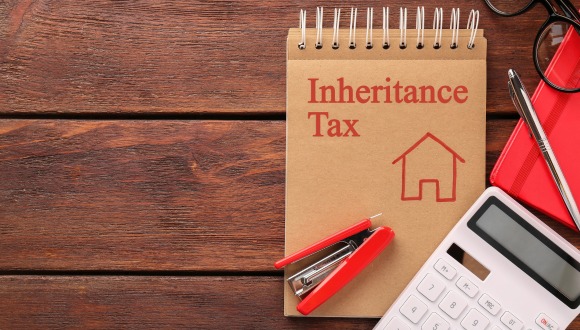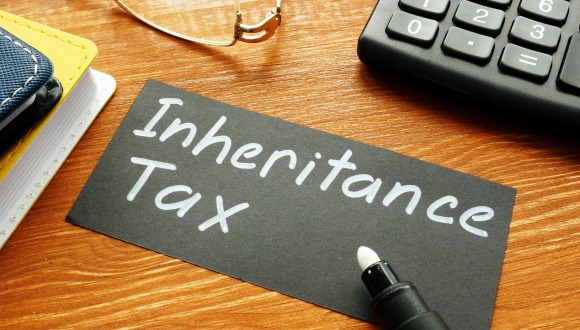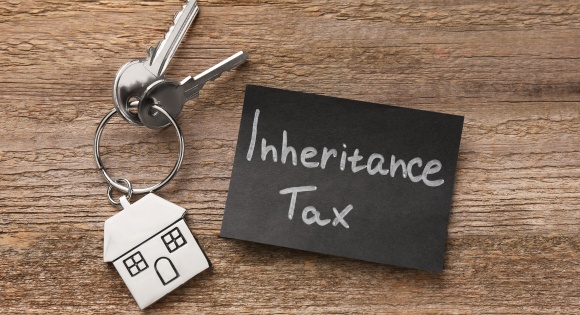


At Prescient Accounting, we understand that inheritance tax (IHT) can be a complex and sensitive issue. Our team of dedicated inheritance tax accountants is here to guide you through the process, ensuring you minimise your tax liabilities and maximise the legacy you leave for the next generation.

Let us know what you need from your accountants, we’re happy to help.
We believe that the role of the accountant is much more than dealing with pure compliance. That’s why we’re offering a free video or telephone call with one of our team of chartered accountants, to give you straightforward and open dialogue about your tax and accounting affairs.

Inheritance tax is levied on the value of a person's estate after their death. This includes assets such as property, savings, investments, and personal possessions. There is generally no IHT to pay if the value of your estate is below a certain threshold, or if you leave everything to your spouse, civil partner, or a charity.
Let's go through the main points to make it a little clearer:
Generally, anyone who dies domiciled (having their permanent home) in the UK is liable for IHT on their worldwide estate.
However, there are exceptions:
Below the threshold - If the total value of your estate, after deducting allowable debts and funeral expenses, is below the current nil-rate band of £325,000, no IHT is payable.
If your estate exceeds the nil-rate band, the standard rate of IHT is 40% charged on the exceeding portion.
However, several exemptions and reliefs can reduce your IHT liability:
Your trusted advisor from Prescient Accounting will explore all possible tax-free allowances and further exemptions to make your estate as tax-efficient as possible.
Prescient Accounting's inheritance tax advisors provide invaluable advice and support on all aspects of estate planning, including...

Accurately determining the value of your assets is crucial for several reasons:
Prescient Accounting's inheritance tax specialists can also assist with:
Minimising your IHT liability to protect your family wealth involves proactive planning and using various strategies, such as:
Our expert advice will ensure that your estate operates in a tax-efficient manner, so you can be confident that your financial affairs are in excellent shape.
Navigating IHT compliance can be time-consuming and complex. Prescient Accounting's specialists can assist by:
By taking care of these administrative burdens, we aim to:
Collaborating with legal professionals is crucial to ensure your will is structured with IHT efficiency in mind. Prescient Accounting can work alongside your chosen solicitor or legal advisor by:
By working collaboratively, we aim to:
Dealing with inheritance tax can be a significant source of stress, especially during a time of loss. Our aim is to alleviate this burden and provide you with peace of mind in several ways.
First and foremost, we strive to provide you with clear and concise information about IHT, empowering you to understand your options and make informed decisions.

The executor or administrator of the estate is responsible for valuing the estate, calculating the IHT liability and submitting the tax return to HMRC.
Once HMRC receives the return, they will review it and issue an inheritance tax assessment, which confirms the amount of tax due. The personal representatives are then responsible for paying the tax to HMRC before distributing the remaining estate to the beneficiaries.
Generally speaking, no; IHT and capital gains tax in the UK are separate taxes and do not directly affect each other. Here's a breakdown:
Therefore, even if you pay inheritance tax on an asset, you might still need to pay capital gains tax if you sell it at a profit later. Conversely, if you inherit an asset with no inheritance tax liability, you could still be liable for capital gains tax if you sell it for more than you inherited it for. See more on our capital gains tax accountants service.


When it comes to inheritance tax planning, the best time to act is now!
The experienced team at Prescient Accounting will provide all the help you need to ensure that your estate operates in the most tax-efficient way.
Contact us today to book your free initial consultation and secure the financial future for you and your loved ones.


Inheritance tax in the UK is a tax on the estate of someone who has passed away. It's generally due from estates whose value exceeds the inheritance tax threshold.
An inheritance tax accountant can offer strategies and planning advice to potentially reduce your inheritance tax liability, such as utilising allowances and gifts effectively.
The current inheritance tax threshold in the UK is £325,000, above which estates may be taxed at a rate of 40%, subject to certain exemptions and reliefs.
Yes, certain gifts can be exempt from inheritance tax, including those given more than seven years before death and gifts to spouses, charities, and small gifts up to a certain value.
The seven-year rule in inheritance tax refers to the principle that gifts made more than seven years before the donor's death are exempt from inheritance tax.
Owning property abroad can still affect your UK inheritance tax liability, as UK residents are typically taxed on their worldwide assets.


We believe that the role of the accountant is much more than dealing with pure compliance. That’s why we’re offering a free video or telephone call with one of our team of chartered accountants, to give you straightforward and open dialogue about your tax and accounting affairs.